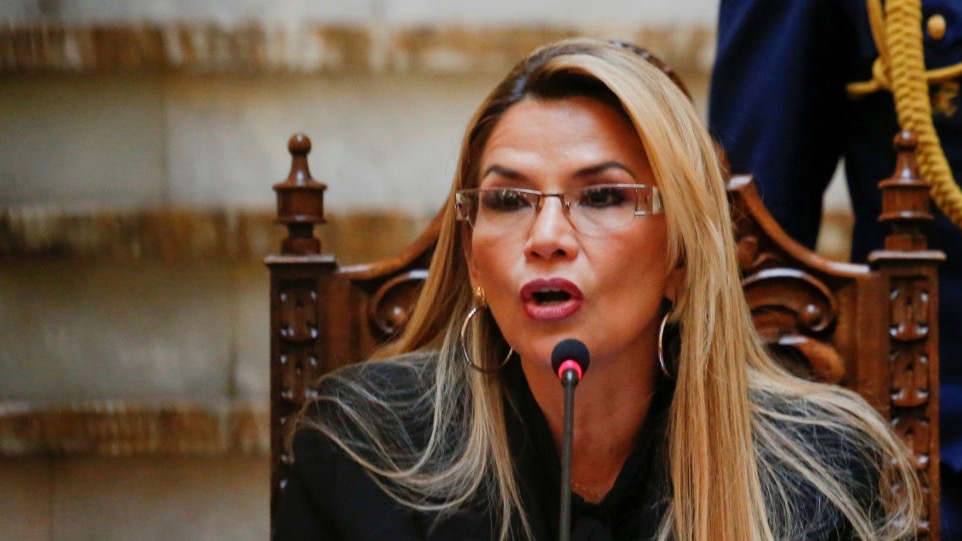Bolivia’s coup appointed interim president, Jeanine Áñez, on September 17, announced that she was withdrawing her candidacy for the general elections scheduled for October 18. Añez said she was pulling out from the electoral race to help unite the conservative vote and try to block the MAS presidential candidate and progressive former economic minister, Luis Arce, from winning.
In a recorded video message, accompanied by her running mate Samuel Doria Medina and other officials, Áñez said that she decided to “put aside” her candidacy for the greater good, avoiding the situation in which “the vote gets divided among various candidates” and the Movement Towards Socialism (MAS) “ends up winning the elections.”
BREAKING: Bolivia's self-declared President Jeanine Añez has withdrawn her candidacy following poor approval ratings for her regime. She has not endorsed another candidate, but says that if the pro-coup right does not unite, then 'Morales returns'. pic.twitter.com/yQCeQ3iA2p
— Kawsachun News (@KawsachunNews) September 18, 2020
Áñez’s announcement came a day after an opinion poll on voting intention placed her in fourth place in the presidential race with only 10.6% of the votes, far from being able to contest a second round. The opinion poll, carried out by a prominent right-wing think tank the Jubilee Foundation, suggested that the front-runner, MAS’ Luis Arce, could win the upcoming elections in the first round with 40.3% of the votes. This poll is the most comprehensive to date, covering both urban and rural areas of 225 municipalities.
New Poll: Bolivia's MAS will win the upcoming elections in the first round, according to a poll carried out by right-wing think tank Fundación Jubileo.
This poll is largest one yet, covering both urban and rural areas across 225 municipalities. pic.twitter.com/DmrbMrnL3f
— Kawsachun News (@KawsachunNews) September 16, 2020
Former Bolivian president Evo Morales, ousted by the civic-military coup against the constitutional government of the MAS in November 2019, said that the withdrawal of Áñez’s “failed candidacy” is an attempt to “negotiate her impunity” from the “scandalous corruption cases during the pandemic, the genocide in Senkata and Sacaba and the economic crisis she has subjected the country to.”
In another tweet, Morales denounced that “the protagonists of the neoliberal crisis -the ADN, MIR, and MNR parties- want to continue looting Bolivia by restoring the infamous mega-coalition amid the critical situation we are experiencing.”
Meanwhile, Carlos Mesa of the center-right coalition of Citizen Community (CC), who is projected at second place with 26.2% of the votes, appreciated Áñez’s decision and said that he is willing to engage in dialogue. On the other hand, Luis Fernando Camacho of the right-wing Creemos party and one of the key leaders behind the violent civic-military coup against Morales in November 2019, who is in the third place with 14.4% of the votes, said that Bolivia needs change and that change will only come with his party.
It remains to be seen which candidate will benefit from Áñez’s votes. To avoid a first-round victory for MAS, at least half of the votes should go to Mesa. According to the Bolivian constitution, in order to win in the first round, the lead candidate has to win more than 50% of the votes or more than 40% of the votes with a 10% lead over the runner-up.





